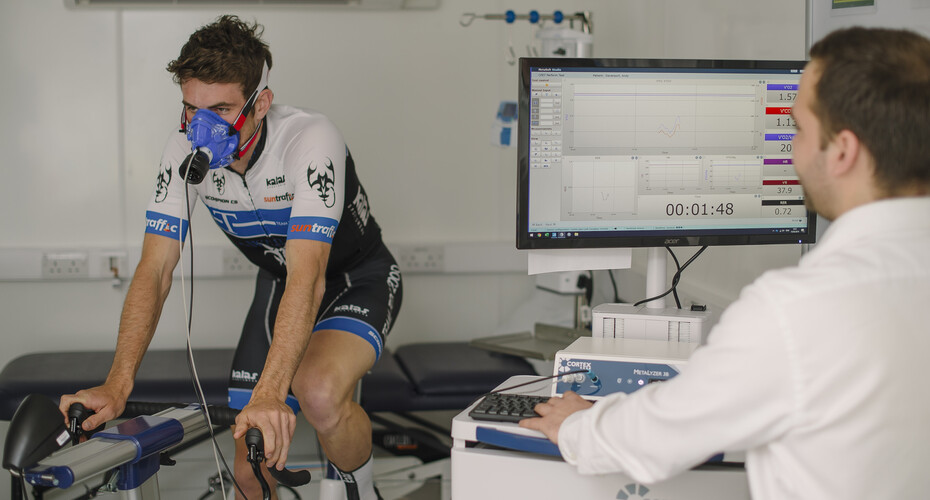Bioenergetic models, causes of exercise-related fatigue and determinants of performance
We are interested in the fundamental causes of exercise intolerance and in using insights from investigations of the muscle metabolic responses to exercise to ameliorate fatigue and to predict and enhance exercise performance. We combine non-invasive (pulmonary gas exchange, magnetic resonance spectroscopy, near infra-red spectrometry, electromyography) and invasive (blood and skeletal muscle sampling) techniques to investigate the limitations to sustainable exercise in a range of different human populations.
Our expertise
We have particular expertise in using bioenergetic models, such as the power-duration relationship, to explore the interaction between oxidative and non-oxidative energy pathways in different types of exercise.
Linked to this, we have published numerous papers on ‘oxygen uptake kinetics’ – specifically, the physiological determinants of the contour of the pulmonary oxygen uptake response to exercise and the practical implications of the ‘oxygen deficit’ and ‘slow component’ for exercise performance.
Professor Anni Vanhatalo: The metabolic determinants of the critical power
Professor Andy Jones: The power-duration relationship & implications for performance assessment
Recent project

How does fatigue influence the power-duration relationship for severe-intensity exercise?
It is well established that the parameters of the hyperbolic power-time relationship, critical power (CP) and the work performed above CP (Wʹ), are important parameters of fitness and strong predictors of endurance exercise performance. The ability to sustain a specific submaximal power output during long duration events (i.e. >1-2-h) will be restricted by CP since this physiological threshold delineates power outputs that cannot be sustained for an appreciable duration from those that can.
Accordingly, CP has important implications for pacing strategy and performance during longer duration athletic events. This might account for our observation that the mean speed sustained by élite distance runners during a marathon race lies within the heavy-intensity domain, at approximately 96% of critical speed.
Our current research explores how prolonged heavy-intensity exercise, which depletes muscle glycogen, influences the power-duration relationship with important implications for endurance exercise performance.
Funder: Nike Inc.
Related publications
- Dynamics of the power-duration relationship during prolonged endurance exercise and influence of carbohydrate ingestion
- Contralateral fatigue during severe-intensity single-leg exercise: influence of acute acetaminophen ingestion
- The mechanistic bases of the power-time relationship: muscle metabolic responses and relationships to muscle fibre type
- Muscle metabolic and neuromuscular determinants of fatigue during cycling in different exercise intensity domains